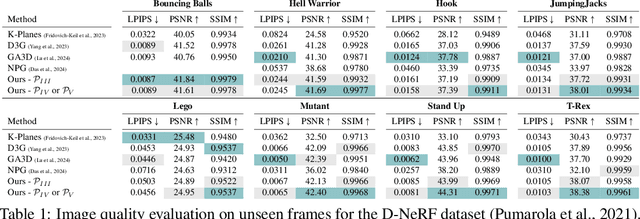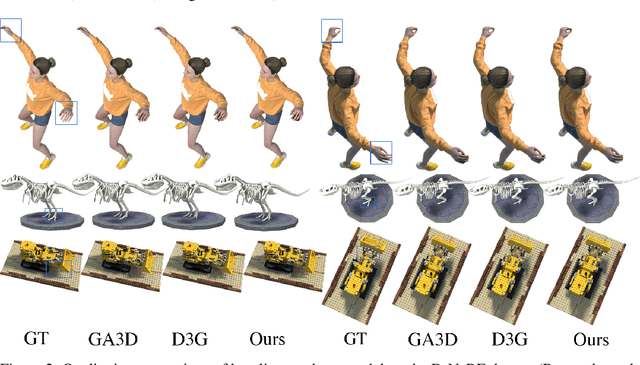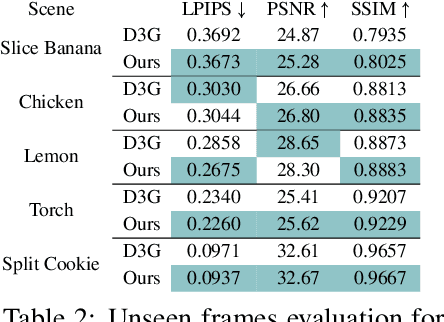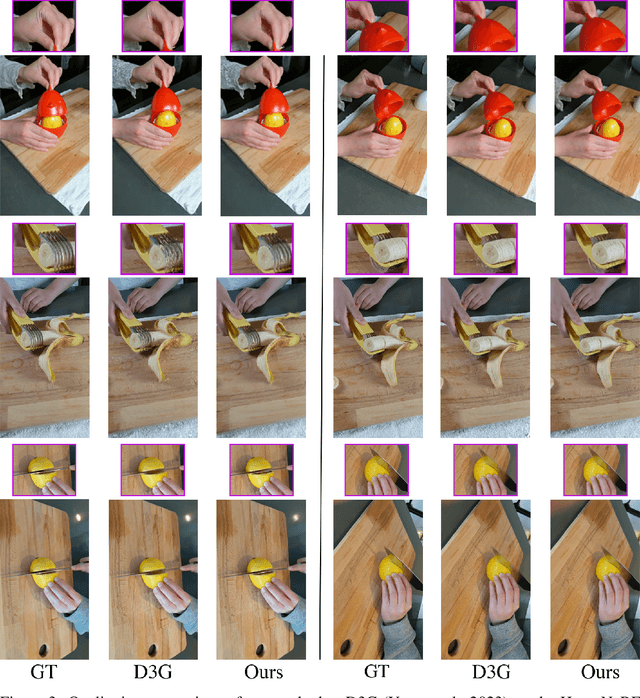Sara Oblak
ReMatching Dynamic Reconstruction Flow
Nov 01, 2024



Abstract:Reconstructing dynamic scenes from image inputs is a fundamental computer vision task with many downstream applications. Despite recent advancements, existing approaches still struggle to achieve high-quality reconstructions from unseen viewpoints and timestamps. This work introduces the ReMatching framework, designed to improve generalization quality by incorporating deformation priors into dynamic reconstruction models. Our approach advocates for velocity-field-based priors, for which we suggest a matching procedure that can seamlessly supplement existing dynamic reconstruction pipelines. The framework is highly adaptable and can be applied to various dynamic representations. Moreover, it supports integrating multiple types of model priors and enables combining simpler ones to create more complex classes. Our evaluations on popular benchmarks involving both synthetic and real-world dynamic scenes demonstrate a clear improvement in reconstruction accuracy of current state-of-the-art models.
Zero-shot causal learning
Jan 28, 2023Abstract:Predicting how different interventions will causally affect a specific individual is important in a variety of domains such as personalized medicine, public policy, and online marketing. However, most existing causal methods cannot generalize to predicting the effects of previously unseen interventions (e.g., a newly invented drug), because they require data for individuals who received the intervention. Here, we consider zero-shot causal learning: predicting the personalized effects of novel, previously unseen interventions. To tackle this problem, we propose CaML, a causal meta-learning framework which formulates the personalized prediction of each intervention's effect as a task. Rather than training a separate model for each intervention, CaML trains as a single meta-model across thousands of tasks, each constructed by sampling an intervention and individuals who either did or did not receive it. By leveraging both intervention information (e.g., a drug's attributes) and individual features (e.g., a patient's history), CaML is able to predict the personalized effects of unseen interventions. Experimental results on real world datasets in large-scale medical claims and cell-line perturbations demonstrate the effectiveness of our approach. Most strikingly, CaML zero-shot predictions outperform even strong baselines which have direct access to data of considered target interventions.
 Add to Chrome
Add to Chrome Add to Firefox
Add to Firefox Add to Edge
Add to Edge